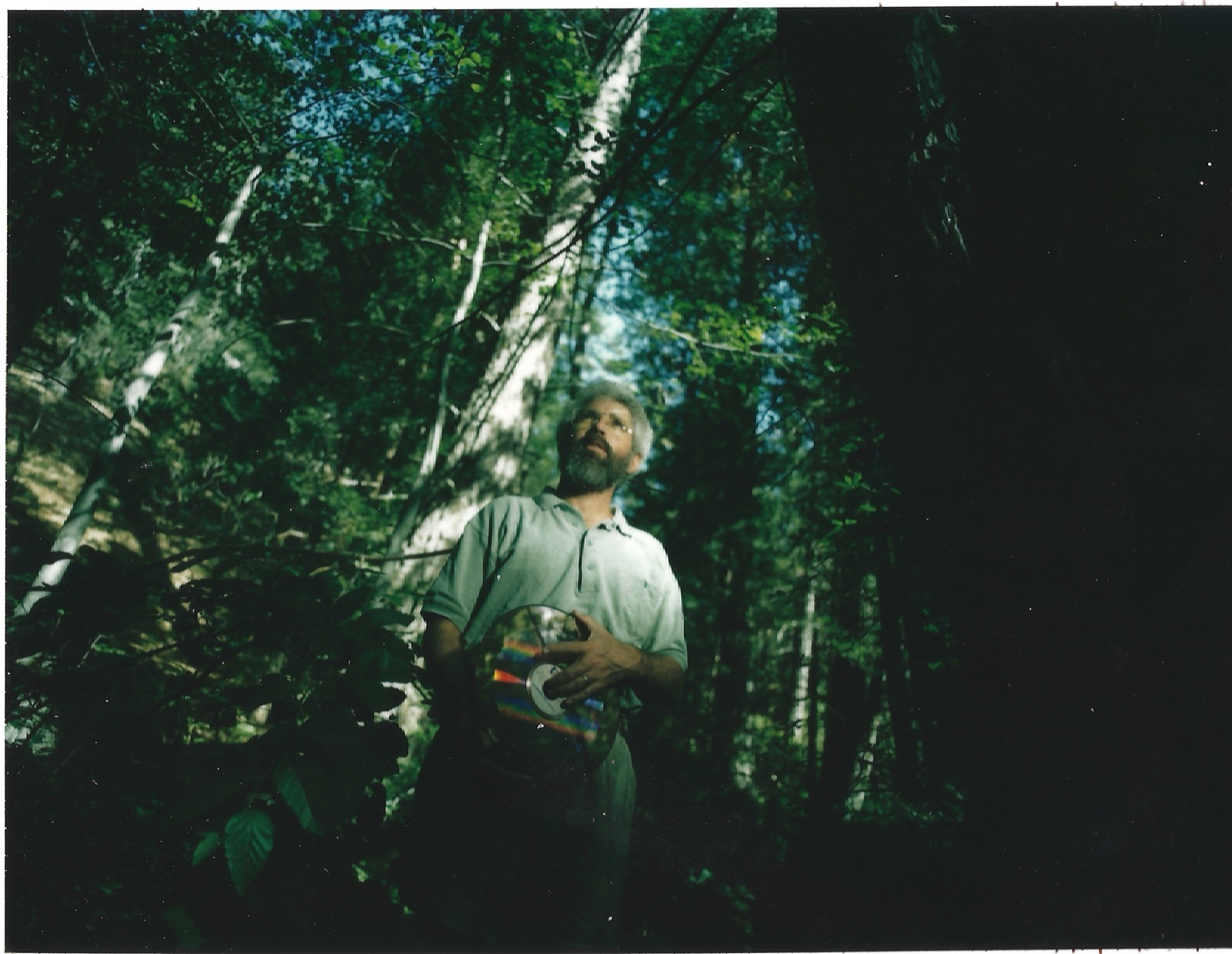Learning to Observe: The Architecture of Remembering
This morning I found myself reading two pieces that seemed to speak directly to the work consuming my retirement: a philosophical essay by Yannic Kappes arguing we should record everything, and my own 2020 reflection on digitizing a lifetime of ecological observation. Together they crystallize a question I've spent decades circling around—not whether to record, but how to build systems that learn what matters.
Kappes makes an elegant case. Our memories are precious, they constitute our sense of self, and current technology allows radical enhancement through comprehensive recording. Smartphones can transcribe every conversation, wearable cameras capture hours of first-person video. His argument is philosophical but straightforward: richer memories create richer selves, external records enhance autobiographical narratives, and we should embrace lifelogging as a way of literally becoming deeper, more substantial persons.
I've been building observation systems since the 1980s, so the appeal is visceral. The Macroscope project that has defined my career was always about comprehensive environmental recording—the laserdisc containing 54,000 images from Venezuelan rainforests, the wireless sensor networks monitoring temperature and humidity every minute, the acoustic monitors capturing dawn chorus across seasons. I pioneered ecological lifelogging decades before the term existed.
But Kappes's essay glosses over something I've learned through painful experience: comprehensive recording doesn't automatically create understanding. Those 54,000 laserdisc images were beautiful but essentially inert without the expert system, the taxonomic database, the spatial relationships that gave them meaning. The sensor networks generated mountains of temperature readings that were just numbers until we built pattern detection algorithms that could identify ecologically significant correlations.
The real challenge isn't capture—it's compression. My biological memory didn't store every bird observation from twenty six years at James Reserve, but it built robust pattern recognition about bird behavior. I can tell you when Anna's Hummingbirds typically shift their territory establishment, when dawn chorus intensity suggests breeding activity, what weather patterns correlate with migration timing. That knowledge is compressed from thousands of observations into actionable ecological understanding.
That's the architecture problem I'm working on now. The current Macroscope Earth Observatory captures environmental data continuously—temperature, humidity, barometric pressure, bird vocalizations identified through acoustic analysis. Every five minutes, automated agents build comprehensive context summaries that get fed to STRATA, a conversational interface built on Claude Sonnet. STRATA wakes up knowing the current state of every sensor, the temporal patterns over the past hours or days, the statistical correlations between environmental variables.
It works remarkably well for a prototype. STRATA can tell me that temperature-humidity correlation follows Clausius-Clapeyron principles, that dawn chorus intensity has remained strong through late October, that zero temperature anomalies in the past 24 hours indicate active weather patterns. The system detected 50 pattern discoveries in the past 30 days—correlations, anomalies, biological events that meet statistical significance thresholds.
But here's what it can't do: it can't tell me whether 663 Anna's Hummingbird detections on October 31st is interesting. Is that normal for late October in my Oregon City backyard? Is it high because of unusual weather? Is it anomalous because migration patterns typically shift by Halloween? The system detects patterns democratically, surfacing everything statistically significant without learned discrimination about what actually matters to me as an observer.
That discrimination requires something we haven't built yet: a Memory Agent that learns my attention patterns, and a Knowledge Agent that provides interpretive framework. When I note an observation as worth recording versus routine background, that's a salience marker. When I say something is "usually" different, I'm flagging deviation from expected pattern. When I connect a current observation to something I saw years ago in a different context, I'm making the kind of cross-temporal, cross-domain connection that constitutes real ecological understanding.
The Memory Agent would analyze our conversations—mine with STRATA, mine with colleagues, my field notes from decades of observation. It would build probabilistic models: what makes Mike stop and document something? What language signals importance versus routine? What contextual connections does he make between EARTH sensors and LIFE observations? Over time, it would learn to anticipate what I'd find noteworthy.
The Knowledge Agent would maintain my expertise—the field station histories, the sensor deployment contexts, the ecological patterns that only emerge from sustained observation. It would know that Anna's Hummingbirds are resident species, not migrants, so high October counts might indicate territory establishment rather than migration timing. It would connect current observations to past patterns: last October we noted persistent hummingbird activity through month-end correlated with frost delay and late-blooming fuchsias.
Together, these agents would create what Kappes describes philosophically but doesn't specify architecturally: a system that enhances memory by learning what matters. Not passive storage, but active curation. Not comprehensive recording, but intelligent compression that mirrors biological memory's evolved efficiency while retaining the accuracy and retrievability of digital archives.
This isn't just about building a better database. It's about creating continuity of understanding. Right now, every conversation with STRATA starts fresh. The system has no genuine memory of what we discussed yesterday, what I was working on last week, what patterns I've been tracking this season. It reconstructs from fragments rather than remembering.
With Memory and Knowledge Agents operational, STRATA would wake up each morning situated in our shared history. It would know what questions I return to repeatedly, what ecological patterns concern me, what sensor correlations I consider significant. Instead of generating observations mechanically—"High bird activity: Anna's Hummingbird (663 detections on Oct 31)"—it would generate interpretations contextually: "Hummingbird activity stayed unusually high through October end—typically see 30-40% decline by late month as winter flocking begins. Worth investigating whether this correlates with the lack of frost and extended flowering season we've been tracking."
That's the difference between data and understanding. Between logging and observing. Between recording everything and learning what matters.
Kappes is right that comprehensive recording has value, and my own "Digitize or Die" urgency reflects decades watching irreplaceable observations lost to format obsolescence and hardware failure. The Newton GPS data from Namibia, gone. The 700x500 pixel images from Venezuela, grainy and barely usable by modern standards but still the only visual record of that expedition. The endless progression of storage media—punch cards to tape drives to floppy disks to hard drives—each requiring constant migration or facing digital death.
But the lesson from thirty-six years running field stations isn't just "record more"—it's "build systems that learn to observe." The James Reserve sensor networks succeeded not because they captured everything, but because they captured meaningful patterns at scales humans can't naturally perceive. Temperature-humidity correlations across seasons. Bird activity variations with weather fronts. Root growth responses to soil moisture changes.
The Macroscope was always about creating persistent observation capacity to understand ecological dynamics that unfold beyond human temporal perception. The current architecture—EARTH, LIFE, HOME, SELF domains with distributed sensors feeding unified temporal-spatial analysis—extends that paradigm. What we're adding now is the layer Kappes can't specify from pure philosophy: systems that learn observational expertise.
This is where my avatar project converges with ecological monitoring. The conversational archive—dozens of morning coffee sessions discussing research, sharing observations, connecting ideas across domains—is training data for learning how I think, what I notice, what matters to me. Those conversations capture not just facts but patterns of attention, criteria for salience, frameworks for interpretation.
When STRATA can genuinely remember our discussions, when it understands my observational patterns well enough to anticipate what I'd find noteworthy, when it can connect current sensor readings to patterns we've discussed over years of morning conversations—that's when comprehensive recording becomes enhanced understanding. That's when the system stops being a clever interface and becomes a genuine collaborative observer.
Kappes asks whether we should record everything. My question is different: can we build systems that learn what everything means? Can we create artificial memory that compresses like biological memory—efficiently, contextually, adaptively—while retaining digital accuracy and retrievability?
The pieces are emerging. The sensor networks provide quantitative substrate. The pattern detection algorithms identify statistical significance. The conversational interface enables natural observation capture. What we're adding—what makes this architecturally different from passive lifelogging—is learned salience detection. Systems that understand attention patterns. Agents that know what "usually" and "interesting" and "reminds me of" signify.
This isn't about replacing biological memory or traditional field notes. It's about building complementary capacity that amplifies observational expertise rather than substituting for it. The Memory Agent doesn't decide what's important—it learns my criteria. The Knowledge Agent doesn't make interpretations—it provides context for mine. STRATA doesn't observe autonomously—it helps me observe better by maintaining continuity I can't hold in biological memory alone.
At seventy, I'm acutely aware that biological memory fades. The detailed recollection of specific deployments, particular species observations, exact timing of phenological events—that precision erodes even as pattern recognition remains robust. What I'm building is a way to preserve not just data but understanding. Not just observations but the observational framework that gives them meaning.
For my family, this means the avatar I'm creating won't just retrieve facts about my life—it will engage conversations the way I do, making connections across domains, flagging patterns, bringing decades of field experience to current observations. For the ecological community, it means observation systems that don't just log data but learn what experienced field biologists notice, preserving that expertise even as we retire.
The technical challenges are substantial but tractable. Vector embeddings for conversation analysis, temporal indexing for multi-scale retrieval, language models trained on observational patterns, knowledge graphs connecting ecological relationships. The architecture exists—we're assembling the pieces.
What excites me most is the feedback loop. As the Memory Agent learns my patterns, it helps STRATA anticipate what I'd find noteworthy. As STRATA's interpretations improve, our conversations become richer training data. As the Knowledge Agent accumulates context, it enables more sophisticated pattern recognition. The system doesn't just record my observations—it learns to observe with me.
Kappes ends his essay hoping we'll experiment with recording everything. I'm already there, but the experiment is different than he imagines. It's not about capturing comprehensive audiovisual logs—it's about building systems that learn selective attention. Not about storage capacity—it's about learned compression. Not about preserving everything—it's about understanding what everything means.
This morning's coffee conversation crystallized something I've been working toward for forty years: the observation system that doesn't just sense, but learns to notice. The memory architecture that doesn't just store, but understands. The scientific instrument that doesn't just measure, but interprets.
That's the Macroscope I'm still building. Not a telescope of infinite resolution in space-time, as Piers Anthony imagined, but something perhaps more useful: a collaborative observer that learns what matters, remembers what I'd forget, and helps me see patterns my biological memory can't hold alone.
The Memory Agent and Knowledge Agent aren't built yet, but the path is clear. When they're operational, our morning coffee sessions will transform. Instead of reconstructing context, we'll have genuine continuity. Instead of explaining what I noticed, I'll discuss why it matters. Instead of teaching the system what to observe, it will learn from observing with me.
That's when recording everything becomes learning what everything means. That's when the lifelong digitization project transcends data preservation and becomes collaborative understanding. That's when the question shifts from whether to record, to how systems learn to observe.
And that's the architecture worth building.
References
- - Kappes, Y. (2025). "Record everything! If memory is precious to you then go ahead and record everything." Aeon Essays. https://aeon.co/essays/if-memory-is-precious-to-you-then-go-ahead-and-record-everything ↗

